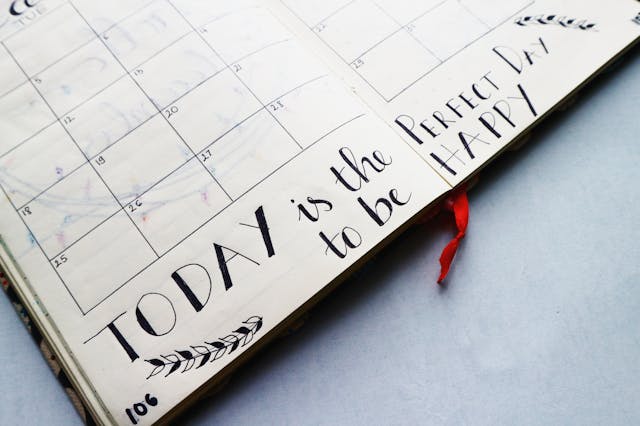How To Respond To Being Disrespected With Confidence

We’ve all been there.
Someone says something slick, dismisses your opinion, talks down to you, or outright crosses the line. And in that moment, your stomach tightens, your heart races, and your brain does a rapid-fire scan of all the ways you could react.
Do you clap back? Stay quiet? Walk away? Blow up?
The truth is, disrespect stings—but how you respond says more about your power than the insult ever could. Responding with confidence doesn’t mean you have to yell, humiliate, or prove anything. It means knowing your worth and standing on it—calmly, clearly, and without backing down.
Here’s how to respond to being disrespected like someone who knows exactly who they are.
1. Pause Before You React
The first rule of confident responses? Don’t react in the heat of emotion. That initial wave of anger, shame, or defensiveness can lead to overreactions or words you might later regret.
Take a breath. Give yourself a moment to feel the emotion—but don’t let it take the wheel. Confidence comes from control, not chaos.
Silence isn’t weakness. It’s space. And sometimes, a well-timed pause is more powerful than any comeback.
2. Assess the Intent Behind the Disrespect
Was it a thoughtless comment? A power play? A full-blown attack? Not all disrespect is created equal—and neither should your response be.
If it was unintentional, a calm conversation might clear things up. If it was deliberate, your tone should shift accordingly. You don’t need to respond to every jab like it’s war—but you do need to stand up for yourself when it matters.
Knowing the motive helps you respond with precision, not pettiness.
Don’t Miss: 10 Cheat Codes I Wish I Knew at 30
3. Use Clear, Firm Language
Confidence lives in clarity. You don’t need to yell. You don’t need to insult. You just need to be direct.
Try something like:
- “I don’t appreciate being spoken to that way.”
- “Let’s keep this respectful.”
- “That comment was unnecessary.”
- “We can continue this conversation when it’s constructive.”
Short. Calm. Assertive. No over-explaining. No emotional spiral. Just facts, delivered with grace.
4. Don’t Shrink or Second-Guess Yourself
When someone disrespects you, especially in public or a high-pressure environment, it’s easy to freeze or minimize it. You start questioning: Was I overreacting? Maybe I’m being sensitive…
No. Trust your gut.
If something felt off, it probably was. Don’t gaslight yourself. Standing tall in that moment—even if your voice shakes—is a powerful declaration that your dignity is non-negotiable.
You May Like: How To Read People Without Them Knowing
5. Keep Your Tone Calm but Unapologetic
There’s strength in composure. When you respond to disrespect with calm confidence, it throws people off—especially those who expected you to snap or crumble.
Avoid sarcasm, passive-aggressiveness, or emotional outbursts. Speak like someone who’s used to being respected—even if you weren’t in that moment.
The message you send is clear: “You don’t have the power to shake me.”
6. Hold Boundaries—And Be Willing to Walk Away
Confidence doesn’t just speak—it acts. If someone keeps crossing the line after you’ve addressed it, you don’t have to stay and tolerate it.
Let them know: “If this continues, I’ll have to remove myself from the conversation.” Then do it.
Whether it’s a rude coworker, a toxic friend, or a dismissive partner—respect isn’t optional. You don’t argue for it. You expect it. And you enforce it.
7. Don’t Match Their Disrespect
It’s tempting to snap back with something just as nasty—but responding with disrespect only drags you down to their level. Confidence isn’t about proving you’re better. It’s about knowing you are—and acting accordingly.
Someone else’s poor behavior doesn’t get to dictate yours. Keep your crown on, even when they’re throwing dirt.
Don’t Miss: 10 Sentences That Will Get You Ahead of 91% of People
8. Use the Power of Silence
Sometimes the best response is none at all.
If someone disrespects you in a petty, immature way, your silence can speak volumes. It shows that their words are beneath you—that you don’t entertain drama or disrespect.
This especially works with attention-seekers or people trying to provoke you. When you don’t feed their need for chaos, you take back your power.
9. Protect Your Peace—Not Just Your Pride
Confidence doesn’t mean you confront everyone who offends you. Sometimes, the most powerful thing you can do is let it go and move on—not because you’re weak, but because your peace is too expensive to waste on nonsense.
Not every battle is worth your energy. Pick the ones that matter. The rest? Let them roll off your back like the boss you are.
10. Heal the Trigger, Not Just the Moment
Being disrespected can tap into deeper wounds—childhood rejection, past betrayal, or a history of not being heard. While standing up for yourself in the moment is important, real confidence is built behind the scenes.
Ask yourself: Why did that comment shake me so deeply?
Work on healing the old stories that tell you you’re not enough. That way, future disrespect won’t hit as hard—because you know your worth isn’t up for debate.
You May Like: 15 Secrets To Instantly Boost Your Confidence
11. Remember: Confidence Is a Practice, Not a Trait
Nobody’s confident all the time. Even the calmest people feel shaken when disrespected. The key is to practice responding instead of reacting, choosing your words wisely, and trusting your value—especially when it’s being tested.
Confidence is a muscle. The more you use it, the stronger it gets.
12. You Don’t Owe Anyone Access After Disrespect
Forgiveness is your choice. But access? That’s earned.
If someone repeatedly disrespects you, they don’t deserve your time, attention, or energy. You’re allowed to cut ties. You’re allowed to create distance. You’re allowed to say, “This dynamic no longer works for me.”
Confidence is knowing when to walk away—and never looking back.
FAQs
- What if I freeze and can’t respond in the moment?
That’s normal. Confidence doesn’t require instant reactions. You can always circle back later and say, “I’ve been thinking about what happened earlier, and I need to address it.” - Should I always say something when I feel disrespected?
Not always. Use your judgment. If it’s minor or you sense it’s not worth the energy, protect your peace. But for repeated or serious disrespect, speak up. - Isn’t staying silent weak sometimes?
Not at all. Strategic silence can show strength. It says, “I’m not here to play your game.” It’s about choosing when to speak—not being afraid to. - How do I stay calm when I feel triggered?
Practice breathing techniques. Pause before responding. Focus on your tone. If you need to step away and revisit the conversation later, do that. - What if the disrespect comes from someone close to me?
That’s harder—but even more important. Set clear boundaries. Communicate how their behavior affects you. If they continue, consider distancing or seeking support.






